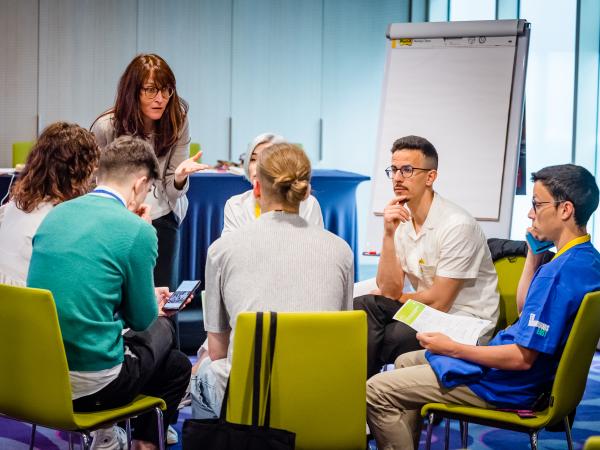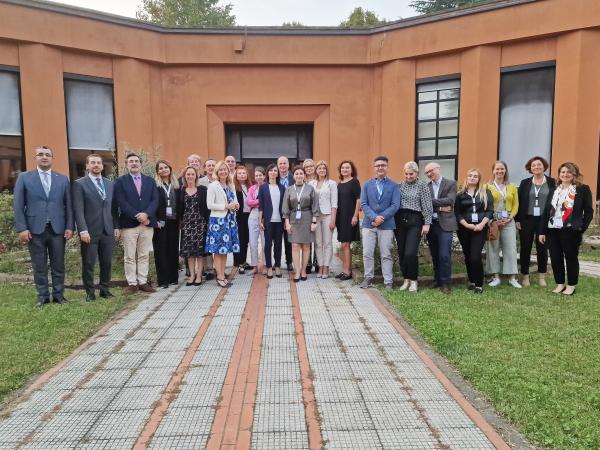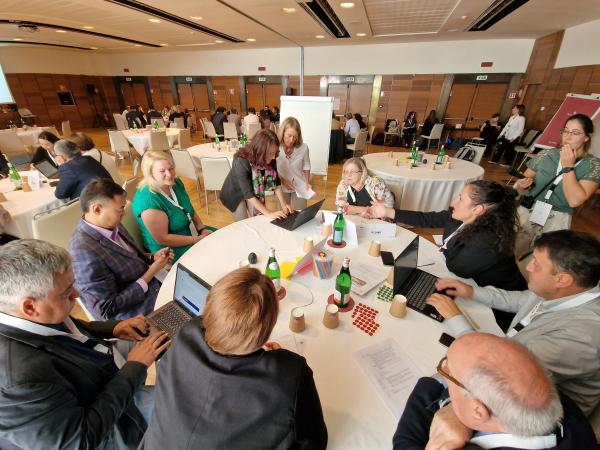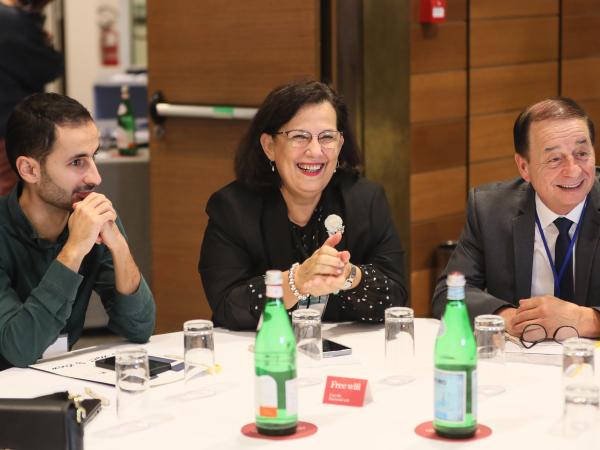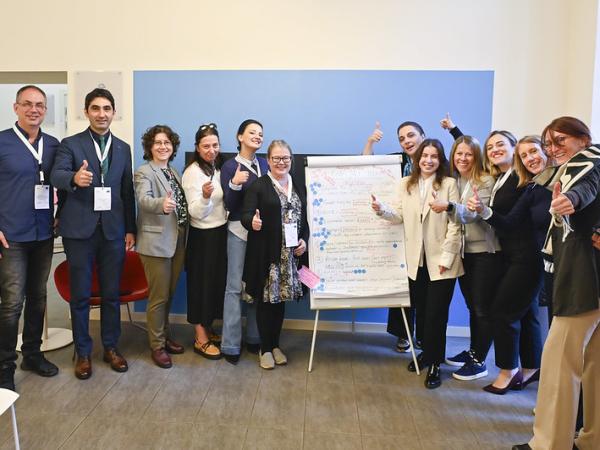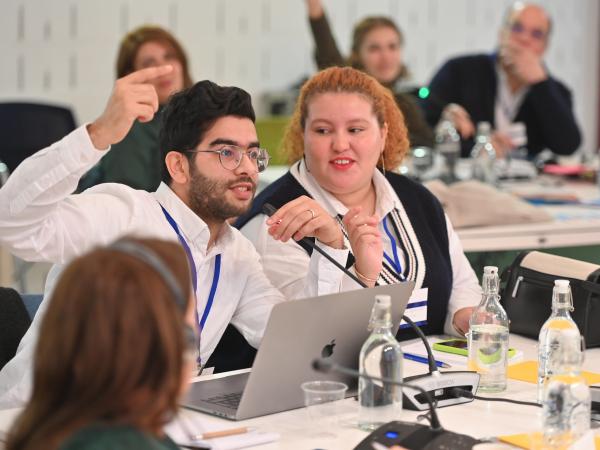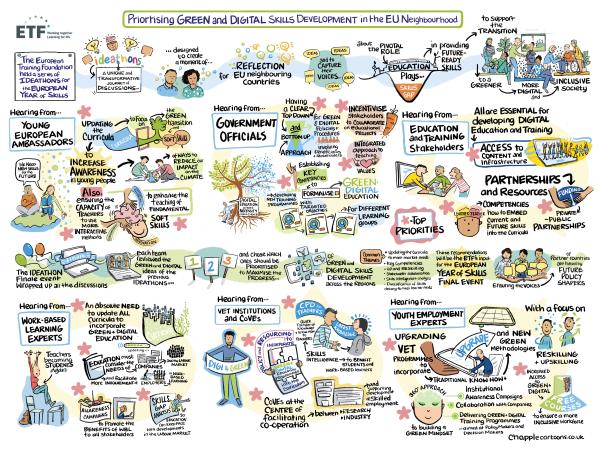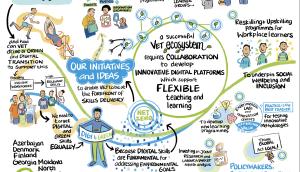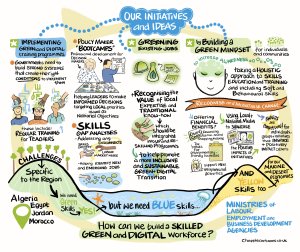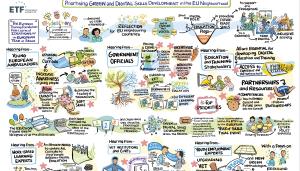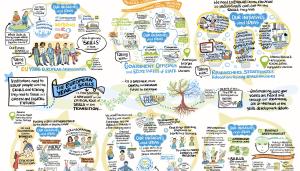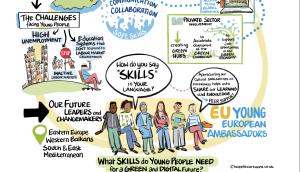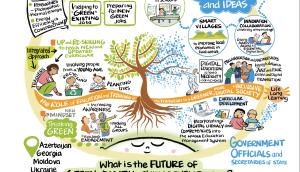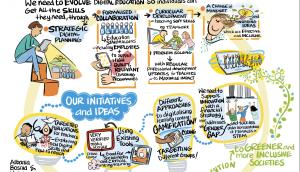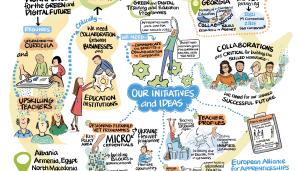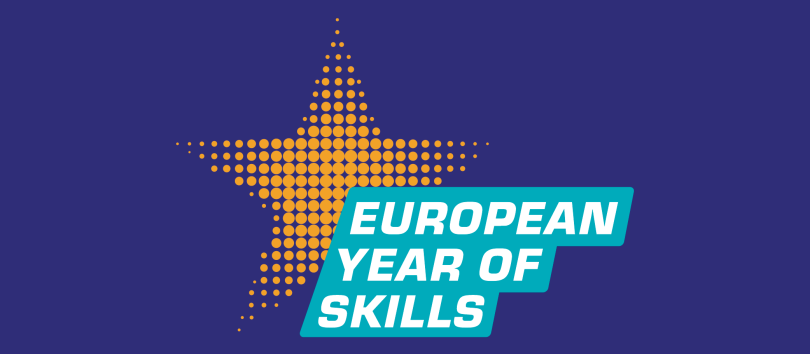
Our journey to shape tomorrow's green and digital skills
The 30 April 2024 will mark the end of the European Year of Skills, highlighting the critical role of skills in supporting a decarbonised and digital economy across Europe and its neighbouring regions.
The European Year of Skills has provided the European Training Foundation (ETF) with a unique opportunity to focus its work with partners in EU neighbouring countries on supporting the transition to greener, more digital and inclusive societies. Through our interactive and collaborative activities, we have developed ever-closer partnerships that have helped us cultivate a rich landscape of innovative educational initiatives that tackle the challenges of a green and digital future.
As we move forward, let us reflect on the wealth of ideas we have gathered during this journey. Despite the future's unpredictable nature, one aspect is certain: education and training are fundamental in providing the skills needed for a sustainable future.
Charting the way ahead: the top ideas from our ideathons
At the heart of our Year of Skills journey were the ideathons – a series of interactive events designed to capture the voice of all educational stakeholders from EU neighbouring countries to generate innovative ideas as to how learners can gain skills for the evolving digital and green landscape. The key recommendations we collected during these events will pave the way for ETF work ahead, guiding our collaborative efforts with partners beyond the European Year of Skills.
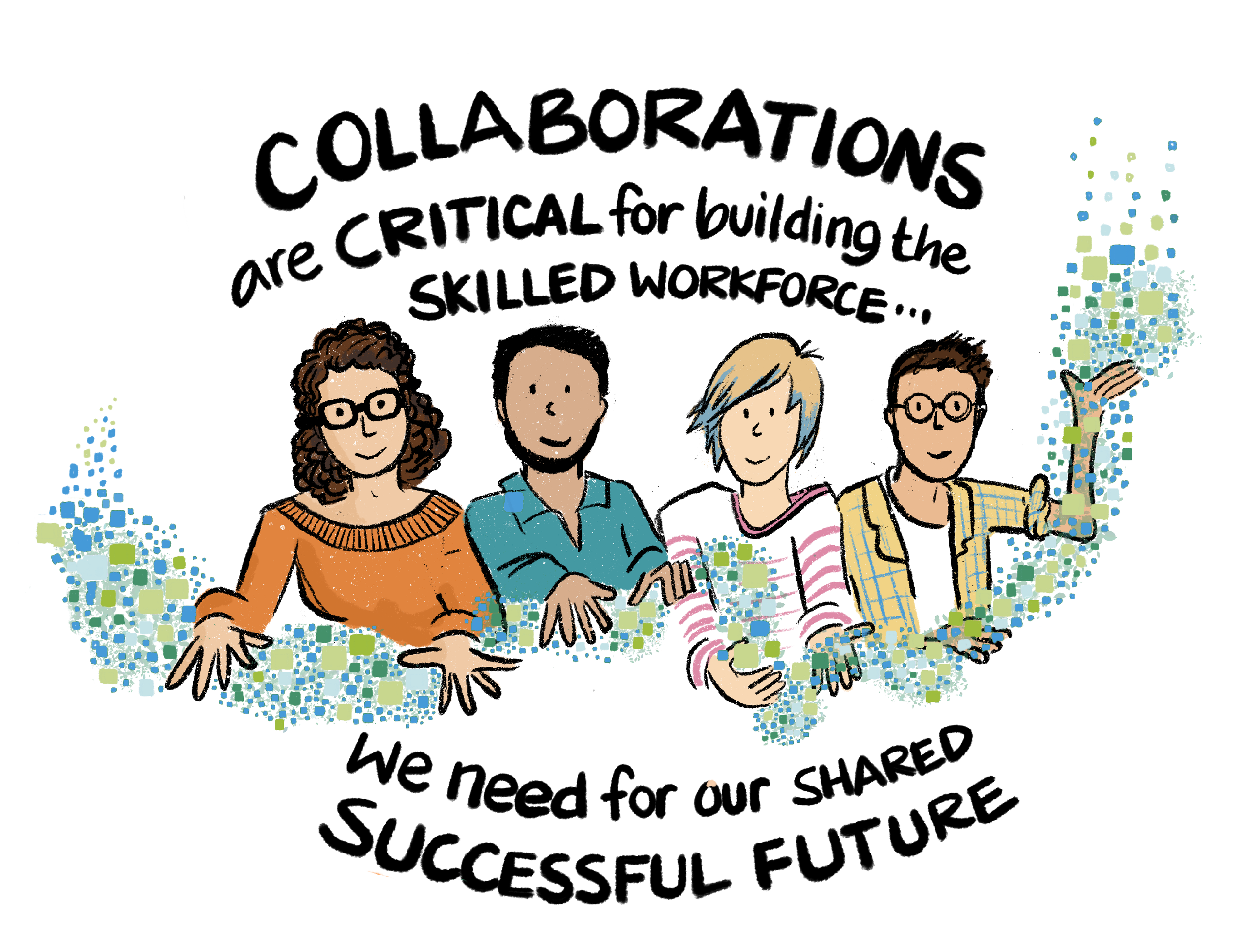
Building a future-ready workforce: Embed green and digital competences into curricula, targeted to all learners.
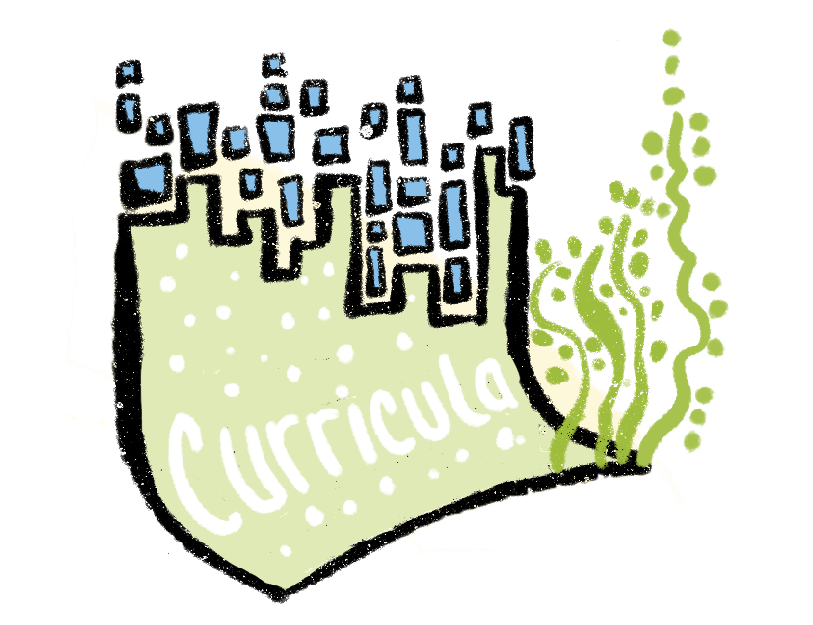
Updating curricula: Redesign curricula to meet labour market needs and recognise informal and non-formal education to equip learners with a versatile set of skills.
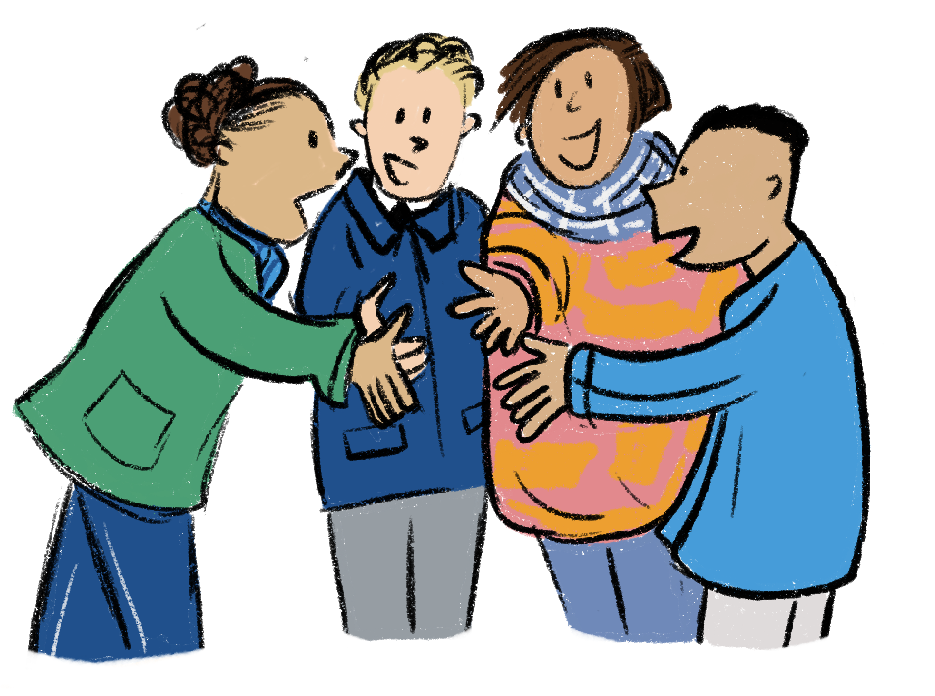 Enhancing communication: Increase dialogue between traditional key players and innovators from education, emerging industries and civil society to shape education policies for the changing job market.
Enhancing communication: Increase dialogue between traditional key players and innovators from education, emerging industries and civil society to shape education policies for the changing job market.
 Forging partnerships: Encourage active involvement of employers in education through incentives, public-private partnerships and joint innovation programmes to effectively deliver relevant skills to all learners.
Forging partnerships: Encourage active involvement of employers in education through incentives, public-private partnerships and joint innovation programmes to effectively deliver relevant skills to all learners.

Navigating the future: Enhance skills analysis to shape education and training programmes. New technologies can drive policy development but must mitigate bias to prevent exclusion and discrimination.

Elevating educators: Prioritise the continuous professional development of teachers to keep pace with technological advances and industry skills.
 Promoting lifelong learning: Increase access to flexible reskilling and upskilling programmes, maximising participation in green and digital economies and fostering inclusive and equitable workforces.
Promoting lifelong learning: Increase access to flexible reskilling and upskilling programmes, maximising participation in green and digital economies and fostering inclusive and equitable workforces.

Empowering grassroots initiatives: Build and embrace a green mindset with policies, campaigns, and community projects that promote local solutions for global challenges.
 Prioritising inclusion: Unlock the full potential of all learners through inclusive education and training, ensuring no one is left behind.
Prioritising inclusion: Unlock the full potential of all learners through inclusive education and training, ensuring no one is left behind.
More ideas from our ideathons
Our ideathons have brought together the perspectives from:
- young people,
- government officials from the Eastern Partnership region,
- educational researchers and strategists,
- experts in apprenticeship and work-based learning,
- centres of vocational excellence,
-
labour, employment and business development agencies from the Union for the Mediterranean,
creating a collaborative vision for the future of skills development.
The voices emerging from these ideathons (see 'Highlights' below) have contributed to piecing together the puzzle of how education and training can innovate to help make the green and digital transition a reality. The European Young Ambassadors who attended the first ideathon, shared their thoughts on how countries are helping them develop their skills. Hear what they said: Young people talk skills – #MySkills4You
What’s next?
At the outset of the European Year of Skills, we made a commitment to capture the voices of our partners in EU neighbouring countries and place them at the heart of the wider skills development debate. We will continue working together to drive forward the changes needed to achieve a sustainable and resource-efficient future, including monitoring the development of policies and practices in the area of green skills and digital skills – a true lasting legacy of our Year of Skills.
